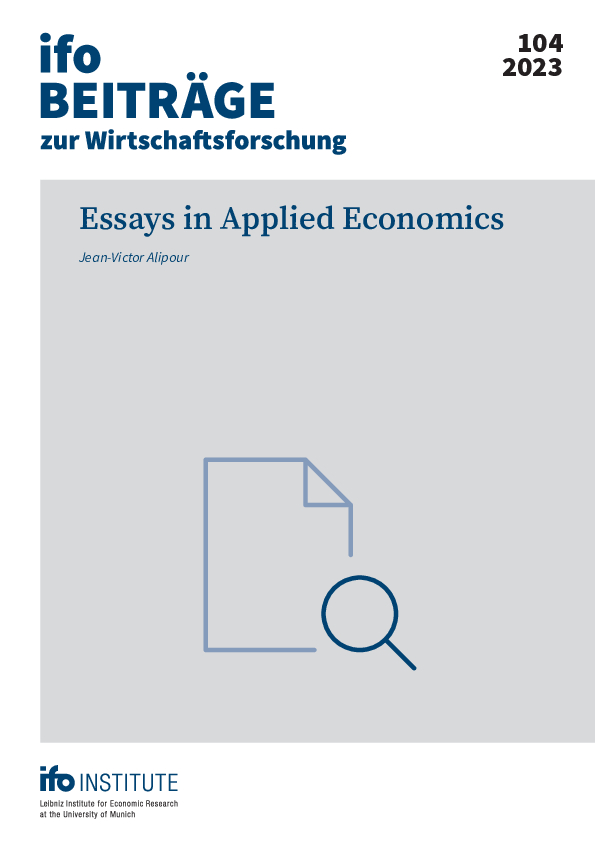Essays in Applied Economics
ifo Institut, München, 2023
ifo Beiträge zur Wirtschaftsforschung / 104

This thesis consists of five independent chapters, studying how economic agents respond to unanticipated shocks. Chapter 1 shows that a well-intentioned policy can create unintended barrier to voting by creating seemingly small shocks to voting costs. Election administrators in Munich control precinct size and recruit new polling places to improve voting accessibility, producing variation in the assignment of citizens to polling locations. Event study estimates suggest that moving a polling place causes a persistent shift from in-person to mail-in voting and a transitory drop in total turnout. The results are consistent with inattention to reassignments, causing some voters to miss requesting mail-in ballots and temporarily abstain from voting. Chapters 2-4 study the role of working from home (WFH) in the context of the economic shock induced by the Covid-19 pandemic. Chapter 2 documents inequalities in access to remote work across the economy. Chapter 3 demonstrates that WFH is an effective mitigation policy against a pandemic as it allows firms to reduce infection risk while maintaining business operations. Chapter 4 provides first insights into how the persistent shift toward remote work redistributes alters the geography of offline consumption within German cities. Difference-in-difference estimates suggest that areas with a greater scope to expand WFH experience a lasting increase in local consumer spending. Finally, Chapter 5 studies the consequences of the technological disruption caused by the advent of first-generation broadband internet for world trade. I present a Ricardian model of comparative advantage, predicting that countries with a more developed broadband network specialize in complex goods. Gravity estimates based on bilateral trade among more than 100 countries between 1998 and 2016 support the theory.